- Home
- Kay Hooper
After Caroline Page 2
After Caroline Read online
Page 2
With a little shock, Joanna realized that it had been twenty years.
She was roused from her thoughts by the coffeemaker hissing as it completed its cycle, and she turned away from the mantel and her memories. The dream had left her in an odd mood, she decided. That was all, just an odd mood.
But she was more uneasy than ever as she went to fix herself the first cup of coffee of the day, because the feelings she remembered from that tragedy of her childhood had not felt so strong since then as they did on this quiet morning. She felt pain, grief, wordless anger. She felt bereft, abandoned. It was as if something had ripped open an old, old wound inside her, and Joanna felt as raw and adrift as she had felt on that June evening when Aunt Sarah had held her and cried.
As if it had happened again.
The first week in September passed, then the second. Joanna managed to keep up a good facade, she thought, but inside, her nerves were jangling. The dream came nightly, and with it the anxiety she couldn’t shake, the sense that something was very, very wrong. More than once, she caught herself looking up from her work and listening intently, almost straining to hear something, and yet with no idea what it was she tried so hard to hear.
And then there were the other things. Odd things she couldn’t explain. Like why a child sobbing in a grocery store because its mother wouldn’t allow candy suddenly had the power to yank at her emotions. And why a whiff of cigarette smoke awoke in her an urge to inhale deeply. And why she began wearing skirts more often than slacks, when she had always disliked skirts. And why she felt a jolt of surprise whenever she looked in a mirror, as if what she saw wasn’t quite right.
She felt like a pressure cooker, the force inside her building and building until she could hardly bear it, until it was dangerous, until she knew she had to do something about it. But she didn’t know what to do, and the frustration of that ate at her. It wasn’t until the middle of September that the dream haunting her offered a clue.
The roar of the ocean was deafening at first, smothering all other sounds. The house, perched high above the sea, was beautiful and lonely and awoke in her a confusing fumble of feelings. Admiration, pride, and satisfaction clashed with uneasiness and fear. She wanted to concentrate on the emotions, to understand them, but felt herself abruptly pulled back away from the house. It receded into the distance and grew hazy. Then a brightly colored carousel horse passed in front of her, bobbing and turning on its gleaming brass pole, as if to music she couldn’t hear. She smelled roses and from the corner of her eye caught a glimpse of the flowers in a vase. Then the roar of the sea abruptly died down until the loud ticking of a clock could be heard. A paper airplane soared and dipped, riding a breeze she couldn’t feel. She walked past a colorful painting on an easel, her steps quickening because she had to … get somewhere. She had to … find … something. She heard sobs, a child’s sobs, and tried to run forward, but she couldn’t move—and then she saw the signpost, and she knew where she had to go—
Joanna woke to find herself sitting bolt upright in bed, her arms outstretched and her heart pounding painfully. Slowly, her arms dropped, and in the silence of the dark bedroom, she heard herself whisper a single word.
“Cliffside.”
Like a weird movie signpost, crooked letters on an old splintered board. Cliffside. It wasn’t very much to go on. There were probably hundreds, if not thousands, of towns bearing that name in the United States alone.
But a research librarian had the tools and knowledge to sift through all the possibilities, and Joanna wasted no time beginning what she expected to be a lengthy search. Luckily, her workload was light at the moment, and so she was able to spend hours at the computer and microfiche machine.
It was a customary part of her job, spending hours combing through information, and Joanna was glad. Not only because it made her task easier, but because she could search for a dream signpost without arousing any undue suspicion. No one around her could possibly guess what was going on in her head, the anxiety and uneasiness. No one could possibly imagine that she woke each night from an eerie dream with a cry locked in her throat and panic tearing at her breathing.
By every outward sign, Joanna’s life was normal. She went to work each day and home each evening. The face she saw in the mirror was unchanged, her smile nearly as quick and easy as it had always been. Her coworkers noticed nothing unusual about her intense focus or the preoccupation that often kept her working through her regular lunch hour. And since she had no family and had kept herself too busy recently to see much of her friends, no one spent enough time with her to realize that in actuality her life was anything but normal.
But Joanna knew. She felt oddly out of control, as if she were adrift in a current, helpless to choose her own direction. She was being carried along, whether she wanted to be or not. Toward a place named Cliffside. She had never really believed in fate, but as the days passed, it began to seem to her as though fate demanded that she concentrate all her energies on one thing alone. Finding Cliffside.
But why? Haunted by a dream, her life virtually taken over by it, Joanna couldn’t begin to understand what was happening to her. She had to believe it had something to do with her accident, since the dream had started afterward, but that didn’t explain why. In her more frustrated moments, she couldn’t help but wonder if all that electricity had simply scrambled her brain, yet even then something deeper inside her refused to believe that. Her accident had somehow been a catalyst, but the dream was no mere accidental pattern of electrical impulses in her brain.
It meant something. And until she understood what that was, Joanna knew that her life would not be her own again.
She threw herself into the search for Cliffside, trying to match the rocky, surf-pounded shoreline in her dream to an actual place. By eliminating all the landlocked Cliffsides from her initial list, she was able to cut the list in half, and eliminating all states with a low-lying coastal plain cut it again, but there were still dozens of towns named Cliffside left, each of which had to be checked out individually for characteristics matching those in her dream.
It was a slow, painstaking process. And by the middle of the third week in September, with Cliffside still elusive, Joanna had begun to seriously question her sanity. She didn’t feel like herself anymore. Favorite foods no longer appealed to her. She found herself drawn to colors she had never cared for. And for the first time in her life, she’d begun to bite her nails, a nervous habit so unlike her that it frightened her. She was filled with anxiety and tormented with a sense of urgency that was knife-sharp each morning when she woke from the dream and diminished only a little throughout the day.
Cliffside. It was like a lodestar, hovering before her to entice and compel. Everything else in her life had shrunk to insignificance.
By the following Sunday afternoon, she had to take a break from the pile of books and clippings cluttering the living room of her apartment, and drove to a shopping center a few miles away. She didn’t need to buy anything in particular, but she was tired and discouraged and not looking forward to the coming night, and splurging on a new bottle of perfume or bath oil sounded like a good idea.
It felt like a good idea too. Then, as she came out of the department store with her purchases in one of those little paper bags with twine handles and the store’s elegant logo printed in foil, a chilly hand grasped her arm.
“Caroline?”
This time, a woman’s shocked face met Joanna’s startled gaze. She was a beautiful and exotic looking blonde with catlike eyes the slightly unreal green of tinted contact lenses, wearing a two-hundred-dollar silk blouse over faded blue jeans.
“No,” Joanna said. “Sorry.”
The woman’s hand fell and her shock faded as she smiled politely. “Excuse me, I thought you were—someone else.” She laughed a little, obviously still shaken, then murmured another apology and went into the store Joanna had just left.
Joanna found herself looking at her own dim reflection in the g
lass of the door as she gazed after the stranger. Caroline again. That, she thought, stretched coincidence a bit thin, to be mistaken for this Caroline twice in such a short span of time. But even that didn’t bother her as much as the shock of the man and woman who had mistaken her for Caroline. Why had they looked that way? Why would they feel such stunned incredulity at believing she was this woman?
Who was Caroline? And why did Joanna have the feeling that that was the most important question of all?
“Oh my God.” Joanna was hardly aware of speaking aloud, but since she was alone in the microfilm room, it hardly made a difference. There was no one to hear her. No one to see the shock she knew her face held. Checking references to Cliffside in Oregon in The Portland Citizen-Times, she had reached the previous July without a reference. Then she had found something.
Caroline McKenna, 29, was killed July 1 when her car went out of control on a rain-slick highway not ten miles from her home. A prominent resident of the coastal town of Cliffside, Oregon, and very active in community affairs, Mrs. McKenna is survived by a husband and daughter. Memorial services will be held July 4 in Cliffside.
Caroline. Killed the day of my accident.
A woman named Caroline, who had lived in Cliffside, Oregon. A woman who had been killed in a car accident on July 1. A woman who might very well have looked enough like Joanna that two people had been shocked to have seen her—alive and walking the sidewalks of Atlanta.
And a haunting, compelling dream containing a signpost that said Cliffside.
Joanna stared at Caroline McKenna’s obituary, reading it again and again. It wasn’t much information to sum up a life—or a death. A car accident. A young and vital woman killed before her time who had left behind a husband and daughter. An end to promise.
Why did it tug at her so? In many ways, their lives seemed opposite. Caroline married with a child, Joanna single and childless. Joanna with a career, Caroline apparently occupied by community concerns. They lived on opposite sides of the country, one in a small town and the other a major city. Yet on the same July day, both had been involved in car accidents. One had survived. The other had not.
A woman she had never known had died three thousand miles away, their lives seemingly unconnected despite their being the same age and possibly being physically similar—and yet Joanna felt the strongest compulsion she had ever known to learn more, to find out about Caroline and Cliff-side. It made no sense to her, no sense at all.
She made a copy of the obituary and automatically labeled a new file folder to add to the others containing material she had collected. This folder was labeled simply Caroline, and it struck Joanna powerfully that the first item of information to be placed into it was Caroline McKenna’s obituary.
She closed the folder and set it aside, then went back to scanning the newspaper for any references to Cliffside and Caroline. Nothing. As far as The Portland Citizen-Times was concerned, the only thing of consequence to happen in Cliffside during the entire year through July was Caroline’s death.
In August, however, there was a brief article about the planned expansion of Cliffside’s small medical clinic; a new wing would be added, thanks to a bequest from Caroline McKenna. In her will, she had left to the clinic a piece of land adjoining the existing structure and more than enough money to build, equip, and staff the new wing. It would contain a lab and the latest diagnostic tools, as well as a cardiac care unit and trauma center.
The article, which Joanna copied and added to Caroline’s file, offered at least some information about Caroline, however indirectly. She’d had money, that much was certain; the projected cost of the clinic’s wing was somewhere in the neighborhood of three million dollars.
Three million dollars.
“There’s one difference between us,” Joanna heard herself murmur wryly.
The article also seemed to indicate that Caroline either had been interested in funding medicine in general or had felt pretty strongly that her community had needed its medical services expanded. But whether she had funded other causes wasn’t clear; there was no mention of any other charitable bequest. And no mention of whether Caroline had left any part of her estate to her husband and child.
It wasn’t until the following day, when she was working through her lunch hour, that Joanna gained computer access to Cliffside’s newspaper and town records and began to find the information she had been looking for. Information about the town and its people, from climate and economy to how many marriages, baptisms, and burials were recorded at City Hall.
And a photograph of Caroline McKenna, taken the previous year when she and her husband had posed with a group supporting Cliffside’s community theater.
She could have been Joanna’s sister.
Dark rather than fair, the dead woman nonetheless shared Joanna’s features, the shape of her face, even her slender build. On the computer screen, Caroline’s delicate features were distinct. Her face was slightly heart-shaped, her dark hair worn in a smooth shoulder-length style some inches shorter than Joanna’s much lighter blond hair. She had large eyes and a tender, almost childlike mouth, and there was an air of fragility about her.
Her husband, Scott McKenna, stood on her right. He was a darkly handsome man in his mid-thirties, well built and taller than Caroline by some inches despite her high heels. The dark suit he wore made him look not so much somber as … aloof. He was smiling faintly, but there was an odd aura of remoteness surrounding him, and though he and his wife stood side by side, they were not touching.
As she looked at the two people and the group around them, Joanna slowly became aware that the restless urgency she had felt for so many weeks had become a conviction so powerful she didn’t even try to fight it. For the first time since waking from the accident, she knew exactly what she had to do, and the relief of that was stunning.
In order to get her own life back, she would have to go to Cliffside and explore the life of another woman, a woman who had died the day they had both been involved in car accidents. Joanna didn’t know why, but she was certain that she and Caroline were somehow connected, and that until she understood that connection and the reason for it, she would never be at peace again.
HOLLY DRUMMOND CAME OUT of her office and cast a critical eye over the front desk, more out of habit than the need to supervise. Bliss Weldon, the day clerk, was, despite her absurd name, both efficient and utterly reliable. And in fact, the desk was quiet, with Bliss working intently at the computer. No phones ringing, no guests offering plaintive grievances. Everything was peaceful, just the way a hotel manager preferred her establishment to be.
Holly consulted a page on her clipboard and nodded to herself. Only one guest was due to check in this afternoon, and she was booked into a small suite for the next two weeks, with the possibility of a longer stay. Which was fine, just fine. This time of year, guests tended to be sporadic, and anytime Holly could declare a 50 percent occupancy rate during the off-season, it was satisfying to both her and the owner.
She walked through the lobby toward the veranda doors, pleased by the elegant and comfortable atmosphere surrounding her. Called simply The Inn, the hotel was more than fifty years old, but no expense had been spared in renovating it less than five years ago, and it was a beautiful place. From the marble floors to the wallpaper, only the best of materials had been chosen, and a well-trained staff kept the place running with smooth, quiet efficiency. The Inn had a four-star rating and a firm reputation for providing the ultimate in comfort for its guests.
It was, in fact, one of the major tourist draws for the area. Beautiful scenery, peace and quiet, and The Inn brought visitors to Cliffside, and the visitors brought money to boost the local economy. Generally speaking, it was a fine relationship all around.
Holly went through the open doors and out onto the seaside veranda. Chaise longues and groupings of tables and chairs were placed invitingly under the protective roof as well as farther out where the October sunshine was bright and war
m. A dozen or so guests relaxed out there, some reading newspapers while others drank coffee and talked.
Holly nodded to the waitress keeping the guests supplied with whatever they wished and went on. Her destination was a chaise at the edge of the veranda, where a lean, copper-haired man relaxed in the sunlight. He wasn’t alone; a girl of about eighteen sat on the foot of his chaise and flirted for all she was worth, encouraged by his lazy smile of amusement.
Holly felt herself frowning, and smoothed out the expression as she joined them, saying pleasantly, “Hi, Amber. I thought you had a drive scheduled for today.”
The slender blonde jumped to her feet, her expression both guilty and defiant. “I told my parents to go without me. Who wants to look at miles and miles of scenery? I was just telling Mr.—I was just telling Cain that I was thinking about walking down to the stores and doing some shopping.”
“It’s a nice day for it,” Holly said, her tone ever so slightly dry. At the moment, she felt every one of the twelve years between her and this girl.
Amber shoved her hands into the front pockets of the very brief shorts she should have packed away a month before and smiled brightly. “I thought so. Cain, would you—would you like to go?”
Cain Barlow chuckled, and his lazy voice matched his smile when he said, “Haven’t you heard the latest psychobabble? Men are hunters and women gatherers; that’s why you love shopping for its own sake, and we hate it.”
Amber looked down at him, her bafflement painfully evident. “Oh. Well … maybe we could walk along the cliffs later?”

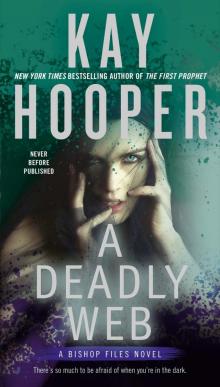 A Deadly Web
A Deadly Web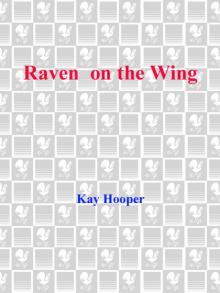 Raven on the Wing
Raven on the Wing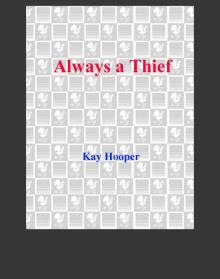 Always a Thief
Always a Thief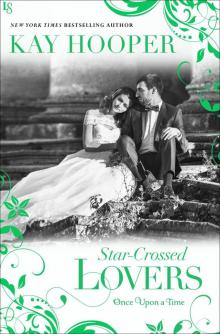 Star-Crossed Lovers
Star-Crossed Lovers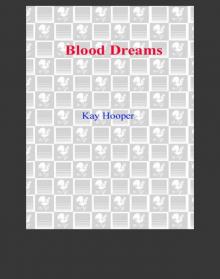 Blood Dreams
Blood Dreams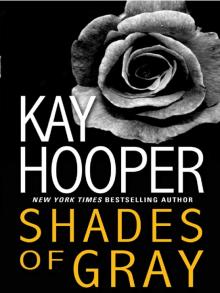 Shades of Gray
Shades of Gray Rebel Waltz
Rebel Waltz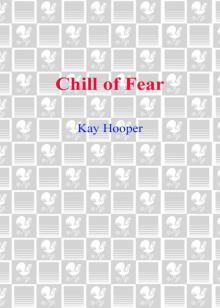 Chill of Fear
Chill of Fear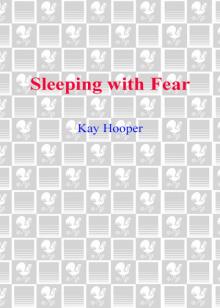 Sleeping With Fear
Sleeping With Fear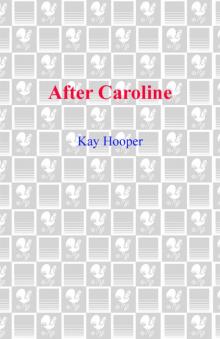 After Caroline
After Caroline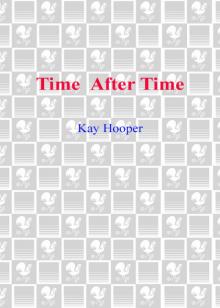 Time After Time
Time After Time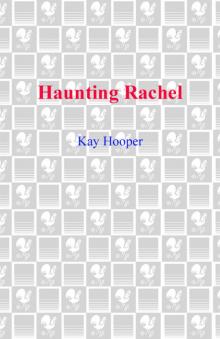 Haunting Rachel
Haunting Rachel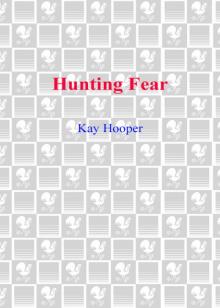 Hunting Fear
Hunting Fear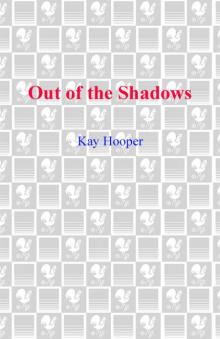 Out of the Shadows
Out of the Shadows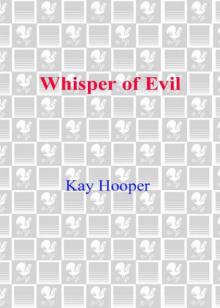 Whisper of Evil
Whisper of Evil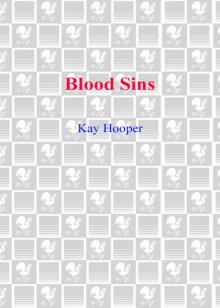 Blood Sins
Blood Sins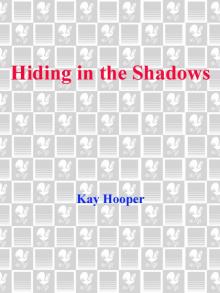 Hiding in the Shadows
Hiding in the Shadows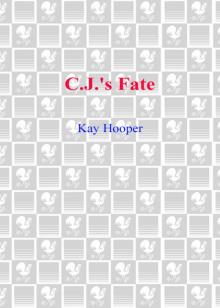 C.J.'s Fate C.J.'s Fate C.J.'s Fate
C.J.'s Fate C.J.'s Fate C.J.'s Fate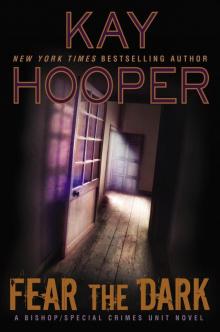 Fear the Dark
Fear the Dark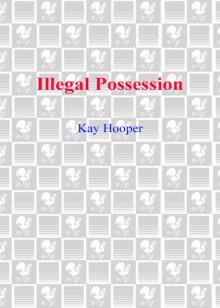 Illegal Possession
Illegal Possession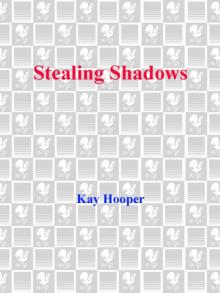 Stealing Shadows
Stealing Shadows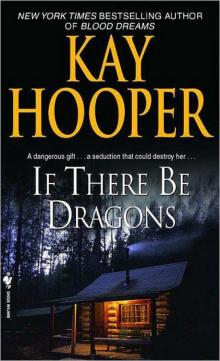 If There Be Dragons
If There Be Dragons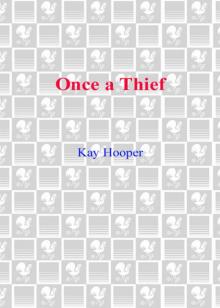 Once a Thief
Once a Thief In Serena's Web
In Serena's Web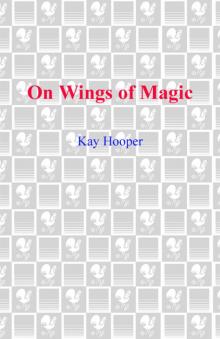 On Wings of Magic on Wings of Magic
On Wings of Magic on Wings of Magic Hostage
Hostage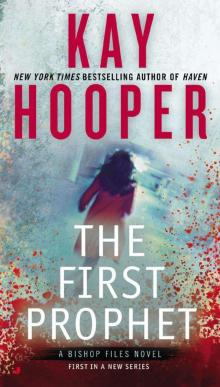 The First Prophet
The First Prophet Through the Looking Glass
Through the Looking Glass Golden Flames
Golden Flames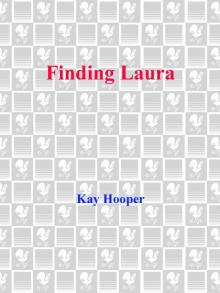 Finding Laura
Finding Laura Haven
Haven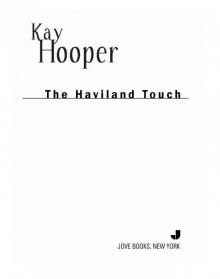 The Haviland Touch
The Haviland Touch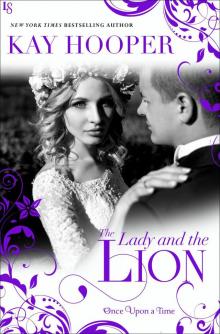 The Lady and the Lion
The Lady and the Lion Haunted
Haunted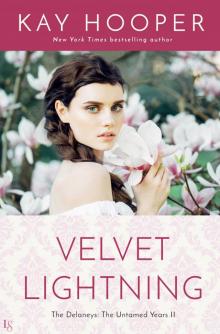 Velvet Ligntning
Velvet Ligntning Blood Ties
Blood Ties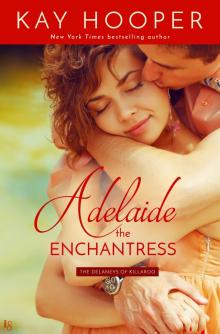 Adelaide, the Enchantress
Adelaide, the Enchantress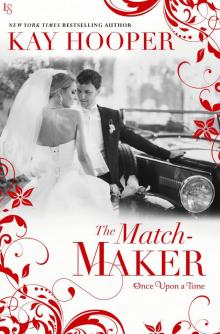 The Matchmaker
The Matchmaker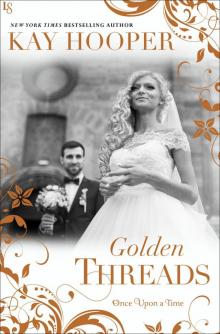 Golden Threads
Golden Threads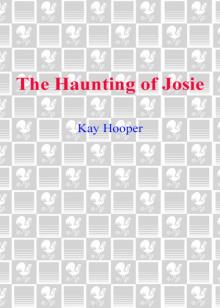 The Haunting of Josie
The Haunting of Josie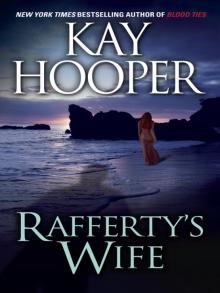 Rafferty's Wife
Rafferty's Wife Amanda
Amanda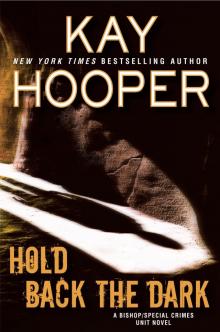 Hold Back the Dark
Hold Back the Dark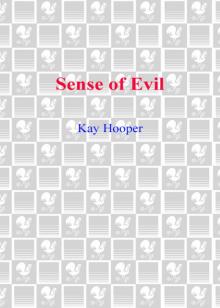 Sense of Evil
Sense of Evil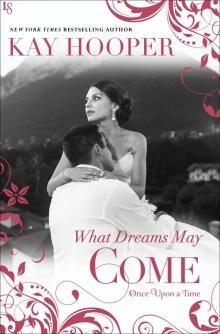 What Dreams May Come
What Dreams May Come Larger Than Life
Larger Than Life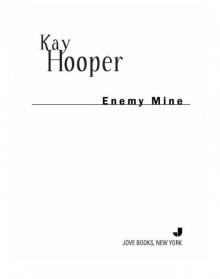 Enemy Mine
Enemy Mine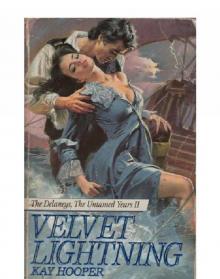 Velvet Lightning
Velvet Lightning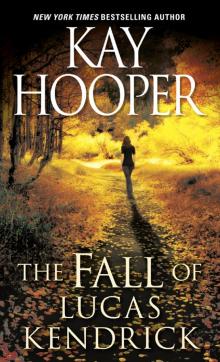 The Fall of Lucas Kendrick
The Fall of Lucas Kendrick Aces High
Aces High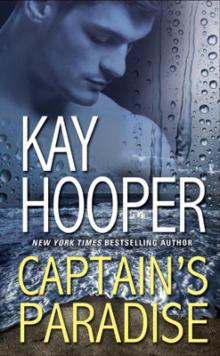 Captain's Paradise: A Novel
Captain's Paradise: A Novel The Wizard of Seattle
The Wizard of Seattle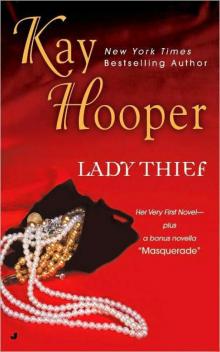 Lady Thief
Lady Thief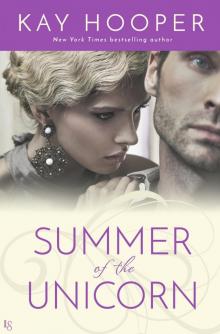 Summer of the Unicorn
Summer of the Unicorn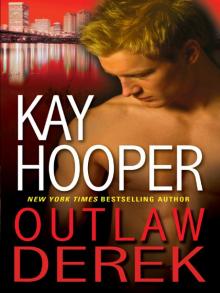 Outlaw Derek
Outlaw Derek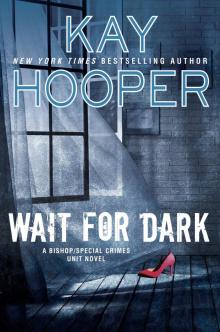 Wait for Dark
Wait for Dark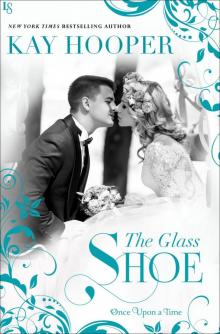 The Glass Shoe
The Glass Shoe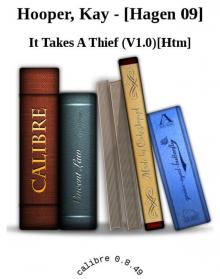 It Takes a Thief
It Takes a Thief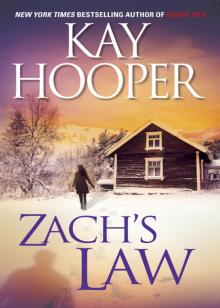 Zach's Law
Zach's Law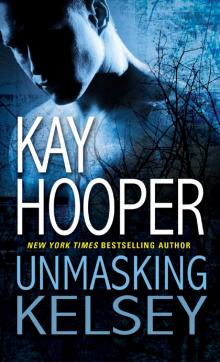 Unmasking Kelsey
Unmasking Kelsey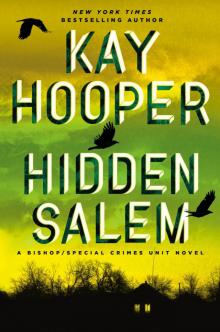 Hidden Salem
Hidden Salem